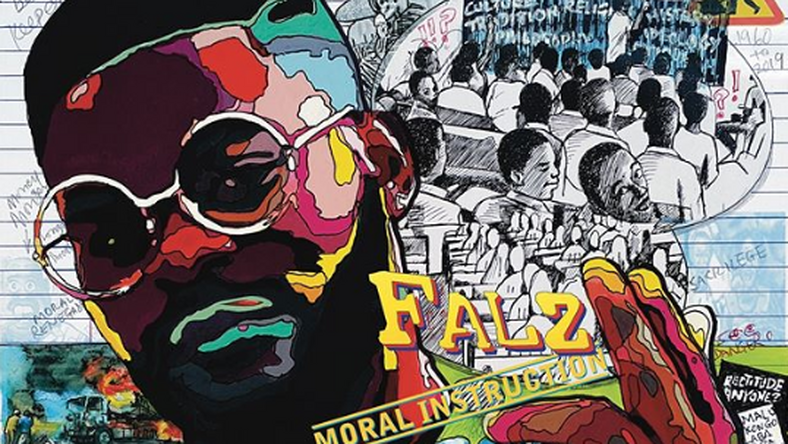A full album extension of his “This is Nigeria” cover of Childish Gambino’s “This is America,” Falz’s Moral Instruction pushes in on a social critique of Nigerian culture and cultural institutions.
Musically, Nigerian rapper Folarin Falana, better known by his stage name Falz, writes within an Afro-hip-hop tradition, which has become increasingly global. Falz (and indeed, most of the biggest African musicians) relocates the global musical flow within Nigeria, indigenizing it (in the Appaduraian sense, meaning, a contextualization of global cultural phenomena through a local lens), which is what’s so satisfying about “This is Nigeria.”
Released last May, the music video for “This is Nigeria” went viral first in Nigeria, attracting attention globally soon after. The music video replays the original’s sequence, refocusing the same spirit of cultural critique on Falana’s own world, in which poor electricity supply, drug addiction, violence, and government corruption are central.
The song sparked controversy, according to NPR, when the prominent Nigeria-based Muslim Rights Concern called for the video to be taken down for being “thoughtless, insensitive, and highly provocative.”
Falana’s Moral Instruction does more than offer social commentary when it nods to the king of Afrobeat. That is, even more satisfying than the music video, or its reworking of Glover’s, is the sampling of Fela Kuti’s “Zombie” on “Follow Follow.”
And “Follow Follow” is only the most overt spectre of Fela. Moral Instruction’s “Amen” takes its bassline from “Coffin for Head of State,” recreating it as hip-hop, and the cover artwork itself was created by the Nigerian artist Lemi Ghariokwu, the long-time cover artist for Fela.
Though notable as torch carrying for Nigerian artistry, the nod to Fela may be more than aesthetic. Falana, himself a lawyer (before turning musician), is the son of Nigerian human rights activist and lawyer, Femi Falana, and national director of Women Empowerment and Legal Aid, Funmi Falana. Fela Kuti’s father was an Anglican minister and first president of the Nigerian Union of Teachers and his mother, Chief Funmilayo Ransome-Kuti, was a feminist activist. Human rights activism runs deep in both families.
Falana’s rebellious music carries on in this vein, but the Fela legacy is a bold one to parallel. Fela was so much more than a musician. The man had been arrested over 200 times, and as a response to the release of Zombie, the Nigerian military carried out a raid on Kuti’s Kalakuta Republic compound, during which his mother was thrown to her death from a third-storey window and Fela was tortured, nearly to death.
Will Falana walk the revolutionary line? As Orji Sunday, writing for Al Jazeera notes, “There would be pressure to remain relevant in a music market tilting towards sex, wealth, and romantic patronage.” Among Moral Instruction’s polemics is a criticism of social media and celebrity obsession. Falana is certainly cognizant of the proverbial music industry’s devil.
With this consideration, the choice to sample “Zombie” will be taken as a statement of commitment — one that Falana should expect to be held to.


